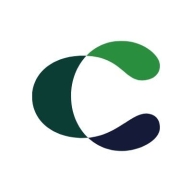

Contrast Security Assess and Fortify Application Defender compete in the application security solutions category. Users tend to prefer Fortify Application Defender due to its comprehensive feature set and advanced analytics, despite Contrast Security Assess receiving favorable reviews for pricing and support.
Features: Contrast Security Assess is known for real-time vulnerability detection, seamless CI/CD integration, and competitive setup costs. Fortify Application Defender offers a wide security rule set, advanced analytics capabilities, and extensive security coverage, resulting in users generally finding its features more comprehensive.
Room for Improvement: Contrast Security Assess could benefit from enhancements in scalability, support for legacy systems, and adaptability. Fortify Application Defender users suggest improvements in the configuration process, lowering system resource usage, and enhancing usability. Both products exhibit distinct areas requiring attention based on user feedback.
Ease of Deployment and Customer Service: Contrast Security Assess is praised for its straightforward deployment and responsive support. Fortify Application Defender, despite offering a detailed setup guide, requires more configuration time. Both products maintain high customer service ratings, with users experiencing faster deployment times with Contrast Security Assess.
Pricing and ROI: Contrast Security Assess stands out with favorable ROI and competitive pricing. In contrast, Fortify Application Defender users acknowledge higher initial costs but justify them with solid ROI due to comprehensive coverage. Pricing perception varies as Fortify Application Defender is viewed as a premium option.
```

Contrast Security is the world’s leading provider of security technology that enables software applications to protect themselves against cyberattacks, heralding the new era of self-protecting software. Contrast's patented deep security instrumentation is the breakthrough technology that enables highly accurate assessment and always-on protection of an entire application portfolio, without disruptive scanning or expensive security experts. Only Contrast has sensors that work actively inside applications to uncover vulnerabilities, prevent data breaches, and secure the entire enterprise from development, to operations, to production.
Micro Focus Security Fortify Application Defender is a runtime application self-protection (RASP) solution that helps you manage and mitigate risk from homegrown or third-party applications. It provides centralized visibility into application use and abuse while protecting from software vulnerability exploits and other violations in real time.
We monitor all Application Security Tools reviews to prevent fraudulent reviews and keep review quality high. We do not post reviews by company employees or direct competitors. We validate each review for authenticity via cross-reference with LinkedIn, and personal follow-up with the reviewer when necessary.